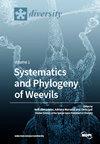Effects of Stand Structure of Artificial Shelter Forest on Understory Herb Diversity in Desert-Oasis Ecotone
IF 2.1
3区 生物学
Q2 BIODIVERSITY CONSERVATION
引用次数: 0
Abstract
The relationship between the spatial structure of shelter forests and the diversity of understory herbaceous plants in desert–oasis ecotones is important for maintaining biodiversity indices and protecting the oasis ecosystem. In this paper, we explore the coupling relationship between tree layer structure (competition index, angle scale, neighborhood comparison, DBH, etc.) and understory herb diversity in the transition zone of shelter forest plots near oases and near deserts; in addition, we also aim to elucidate the dominant stand structure factors affecting herb biodiversity. The results indicated the following: A total of 13 herbaceous plant species were discovered in the transitional zone, with 11 species found near the oasis area and 4 species near the desert region. The Shannon, Simpson, and Pielou indices of understory herbaceous plants were significantly higher near the oasis area compared to the desert region. The Margalef index mean was higher in the oasis area compared to the desert region. Pearson and canonical correlation analyses revealed significant associations between specific stand structure indicators and diversity in the herbaceous layer. The results of the multiple linear regression analysis revealed that the competition index had a significant impact on the Shannon, Simpson, and Pielou diversity indices of the herbaceous layer in the understory of the shelterbelt forest near the oasis, with corresponding impact coefficients of 0.911, 0.936, and 0.831, respectively. The mingling degree was found to be the primary influencing factor for the Margalef index, with an impact coefficient of 0.825. However, in the understory of the shelterbelt forest near the desert, the neighborhood comparison ratio negatively affected the Shannon and Margalef indices, with impact coefficients of −0.634 and −0.736, respectively. Additionally, tree height negatively impacted the Simpson and Pielou indices, with impact coefficients of −0.645 and −0.677, respectively. In order to enhance the diversity of understory herbaceous species in the transitional zone and preserve the ecological system of the oasis, specific modifications to the forest structure and arrangement are essential. Pruning and thinning are necessary for shelterbelt forests located near desert regions, while shelterbelt forests near oases should use a suitable mix of tree species. These measures can help preserve or enhance the diversity of understory herbaceous plants.人工防护林林分结构对荒漠-绿洲交错带林下草本植物多样性的影响
荒漠-绿洲过渡带林下草本植物多样性与防护林空间结构的关系对于维持荒漠-绿洲生态系统的生物多样性指数和保护绿洲生态系统具有重要意义。本文探讨了靠近绿洲和靠近沙漠的防护林样地过渡带乔木层结构(竞争指数、角度尺度、邻域比较、胸径等)与林下草本植物多样性的耦合关系;此外,我们还旨在阐明影响草本生物多样性的主要林分结构因素。结果表明:过渡带共发现草本植物13种,其中靠近绿洲区有11种,靠近荒漠区有4种。绿洲区林下草本植物的Shannon、Simpson和Pielou指数显著高于荒漠区。绿洲地区的Margalef指数均值高于荒漠地区。Pearson和典型相关分析表明,林分结构指标与草本层多样性之间存在显著的相关性。多元线性回归分析结果表明,竞争指数对绿洲附近林下草本层Shannon、Simpson和Pielou多样性指数有显著影响,影响系数分别为0.911、0.936和0.831。混合程度是影响Margalef指数的主要因素,其影响系数为0.825。而在靠近沙漠的林下,邻域比较比对Shannon指数和Margalef指数的影响为负,影响系数分别为- 0.634和- 0.736。此外,树高对Simpson指数和Pielou指数有负向影响,影响系数分别为- 0.645和- 0.677。为了提高过渡带林下草本物种的多样性,保护绿洲生态系统,有必要对森林结构和排列进行针对性的调整。靠近沙漠地区的防护林需要修剪和间伐,而靠近绿洲的防护林应该使用合适的树种混合。这些措施有助于保护或增强林下草本植物的多样性。
本文章由计算机程序翻译,如有差异,请以英文原文为准。
求助全文
约1分钟内获得全文
求助全文
来源期刊

Diversity-Basel
Environmental Science-Ecological Modeling
CiteScore
3.40
自引率
12.50%
发文量
925
审稿时长
11 weeks
期刊介绍:
Diversity (ISSN 1424-2818) is an international and interdisciplinary journal of science concerning diversity concept and application, diversity assessment and diversity preservation. It is focused on organismic and molecular diversity. It publishes reviews, regular research papers and short notes in the regular issues. Related news and announcements are also published. Our aim is to encourage scientists to publish their experimental and theoretical results in as much detail as possible. Therefore, there is no restriction on the length of the papers. Full experimental details must be provided so that the results can be reproduced.
 求助内容:
求助内容: 应助结果提醒方式:
应助结果提醒方式:


